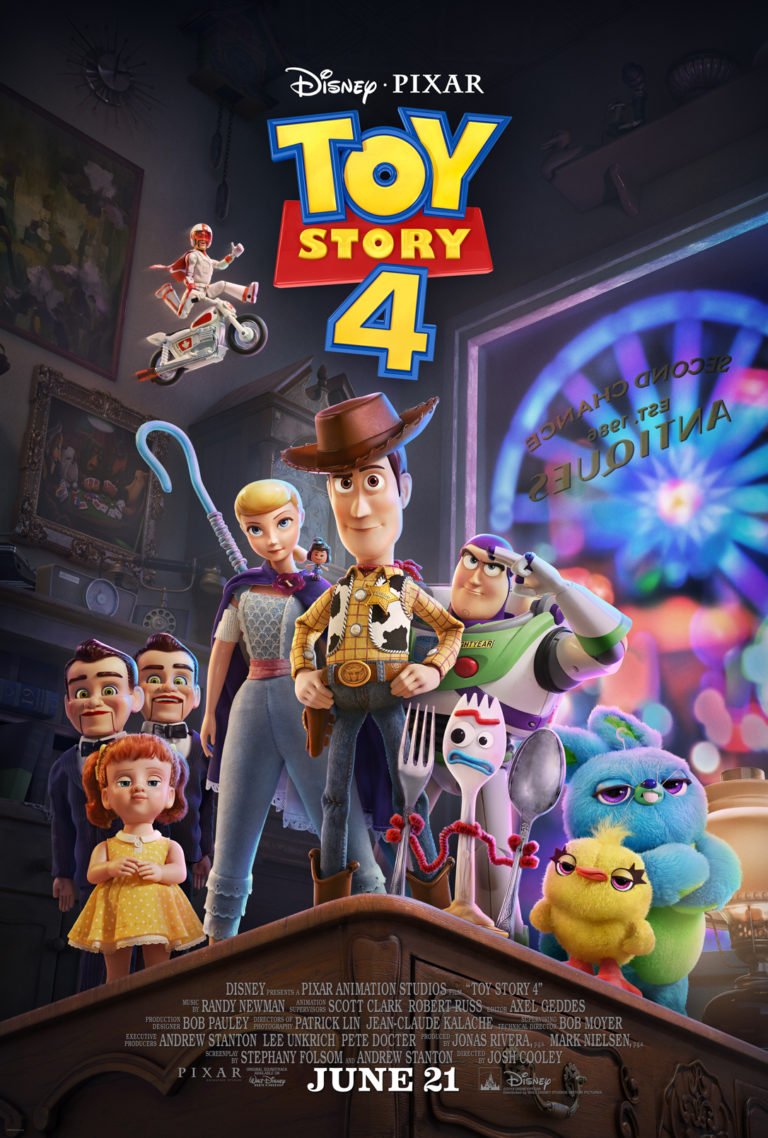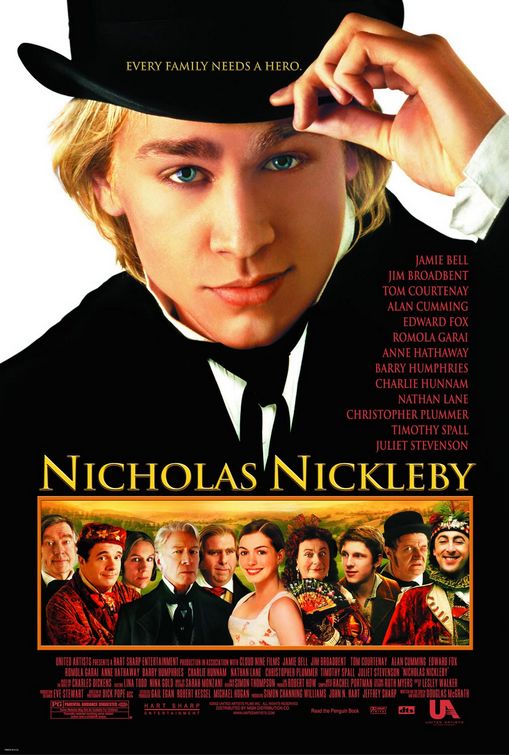“The Good, the Bad and the Ugly”

| None | Light | Moderate | Heavy | |
|---|---|---|---|---|
| Language | ||||
| Violence | ||||
| Sex | ||||
| Nudity |
What You Need To Know:
NICHOLAS NICKLEBY, the latest film adaptation of Charles Dickens’ classic novel, comes down to a classic study of good versus evil. Set in 19th Century England, it chronicles the life of young Nicholas, who must care for his mother and sister after his father’s untimely death. The three move to London in search of their Uncle Ralph’s beneficence, only to learn that he is a mean and retributive man. Nicholas suffers through a job as assistant to the cruel Wackford Squeers at a wretched school for orphaned boys, but escapes with young Smike and sets off to reunite his family.
Newcomer Charlie Hunnam works mightily to flesh out a character who is written so one-dimensionally “good” as to come across as saccharine. He is carried along, however, by a stellar cast that includes Christopher Plummer, Jim Broadbent, Tom Courtenay, and Nathan Lane in a movie that, for the most part, is very entertaining. Dickens’ formula of combining social commentary with characters who clearly define good and evil could easily have been fashioned into a screenplay for young viewers and a G-rating, but questionable elements suggest caution for younger children in this PG-rated film
Content:
(BBB, C, Ho, LL, V, N, A, M) Very strong moral worldview and little overt Christianity, except in a song, but good does prevail as well as suggestion of a theatrical producer as being homosexually inclined; one obscenity and 12 “Oh my God”-type profanities; brief, non-gory representation of man hanging himself; no sex; upper male nudity and baby’s genitalia shown; some drinking; and, miscellaneous immorality such as kidnapping.
More Detail:
Charles Dickens’ novels are a film producer’s dream, as they masterfully combine rich storytelling with mordant social commentary – executed through clearly drawn, almost caricatured characters, and vivid dialogue. His third novel, NICHOLAS NICKLEBY, is a wonderful source for such an adaptation, skillfully done by Douglas McGrath, whose previous successes include a filmed version of Jane Austin’s EMMA.
Because Dickens’ novels were originally serialized in a weekly periodical, his style tended toward the melodramatic (a perfect candidate for today’s soap operas!). The biggest challenge for a screenwriter is that Dickens’ in-depth character descriptions are often lavish enough to be spun off into novels themselves, so serious editing is needed in order to tell the story in two hours. Douglas McGrath wisely chose to focus on the novel’s central tension between Nicholas and his uncle, Ralph Nickleby. Viewers who have read the novel will recognize the omission and/or conflation of some characters, as well as the omission or expansion of some subplots, but will no doubt be fairly pleased with the result.
In the wake of his unwise speculations, Nicholas Nickleby’s untimely death leaves his young family impoverished. His widow, daughter Kate (Romola Garai) and son Nicholas (Charlie Hunnam) must leave their country cottage for London, in pursuit of the beneficence of his brother, the wealthy, miserly Ralph Nickleby (Christopher Plummer). With grim delight, Uncle Ralph procures a five-pound-per-year position for young Nicholas as assistant to Wackford Squeers (Jim Broadbent), owner of Dotheboys Hall, a squalid boarding school for unwanted or illegitimate boys. The wretched Squeers and his equally wretched wife (Juliet Stevenson) are utterly inhumane in their treatment of the young boys – feeding them poorly, beating them often – all the while offering little meaningful education. When Squeers tries to beat the crippled young Smike, Nicholas wrests the whip and turns on Squeers himself, then flees to London with Smike, by now his good friend, in tow. The remainder of the movie chronicles Nicholas’ adventures as he attempts to rebuild his family and avenge the indignities imposed by his uncle.
Nicholas and Smike encounter the flamboyant Vincent Crummles (Nathan Lane), a theatrical producer, whose troupe they successfully join until they are called back to London, where Nicholas finds his mother and sister Kate lodged in one of Uncle Ralph’s run-down London cottages. The mean-spirited Ralph has procured for Kate a low-paying position as a seamstress, in return for which she is expected to endure the leering looks and sexual advances of Ralph’s clients. Nicholas saves his sister from the letches, and becomes gainfully employed by the cheerfully philanthropic Cheeryble brothers, enabling him to provide for his mother and Kate. He falls in love with the nubile Madeline Bray, whom Uncle Ralph is conniving to barter into marriage to one of his ailing, elderly clients.
Ralph and Squeers conspire unsuccessfully to retaliate against Nicholas and Smike. Their effort leads to the tragic, but ultimately happy resolution of the story.
In distilling the major elements of the novel, and for the sake of “theater,” McGrath admittedly (and understandably) aggrandized the role of Crummles and his troupe, both in the middle of the film, and by placing them at the double wedding at the film’s finale. He clearly wanted to emphasize Dickens’ acknowledged pattern of writing about characters’ ability to create a new sense of family when one’s original family collapses. However, his casting of Barry Humphries as Mrs. Crummles (Humphries is best known for his transvestite roles, most recently Dame Edna) opposite Nathan Lane’s effeminate version of Crummles is an unnecessary and inappropriate modern imposition on Dickens’ own brand of social commentary.
The acting from the “big names,” Plummer, Broadbent and Courtenay, is predictably superb, as is that of most of the younger newcomers. The only one who qualifies for a “very good” rather than “superb” is the lead himself, Charlie Hunnam, who probably suffers more from script limitations than from insufficient talent. His Nicholas as written is so relentlessly moral that he’s almost a “goody-two-shoes,” too good to be true. As a result, his performance sometimes pales next to the heavy-hitters who carry the movie. The villains go for the laughs, softening roles that are otherwise drawn as purely bad.
The lighting, sets and cinematography are wonderful. The bleak sets are painfully so, and the representation of dark parlors lighted with kerosene lamps offer strong contrast to the magnificent, sunlit scenes of the lush English countryside. Only period experts could recognize the subtle ways that some settings are historically inaccurate, with the changes having been made for the sake of optimum dramatic visual impact.
The villains of the story surely represent a humanist philosophy, but Nicholas is completely moral and good triumphs over evil, closing the film on a strong redemptive note. Although none of the characters expresses profound faith in God, toward the end a background figure sings about the glory of God.
Sadly, the film could easily have been made for a G-rating, as younger viewers are able to understand characters that so clearly portray good and evil, and most people, the staff of MOVIEGUIDE® included, love happy endings. Hollywood just can’t resist throwing in enough risqué elements to take films to the level of PG!


 - Content:
- Content: 




